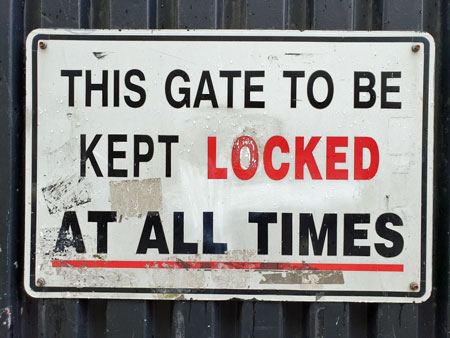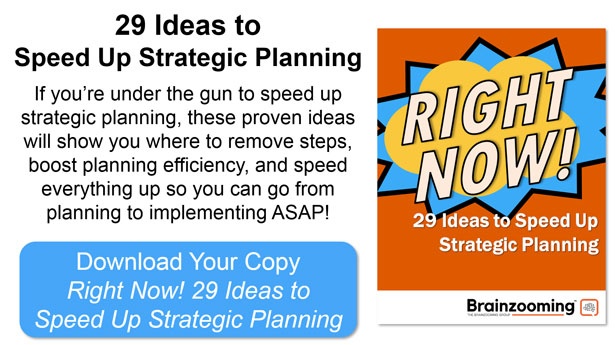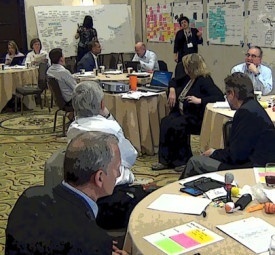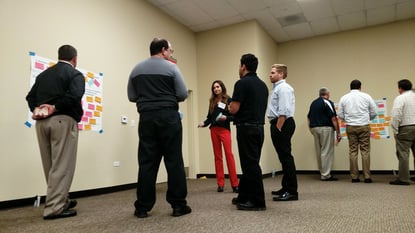Strategic planning benefits from greater visibility. So, how many people know what's coming from your new strategic planning?

Suppose you are completing your plan in a large organization. It calls for far-ranging changes. You are developing the plan a level (or more) below your organization's senior leadership. Are you keeping your senior leaders aware of the the strategic plan’s direction before you complete and present it?
When calling for big changes through your strategic plan, that is a BIG question.
It may seem efficient: keep your head down when developing your strategic plan. The fewer eyes that are on it, the more buttoned up you can be it before you share it widely. You may think you are fully preparing for the big presentation to management. THAT is where you can gain the support you're seeking.
Our experience?
That's risky and offers a low probability of success.
3 Ways More Visibility Yields Strategic Planning Benefits

Instead, we ALWAYS recommend developing a pre-sell strategy. The objective is to provide broad visibility to your strategic plan as you develop it.
One effective method of providing broad visibility?
Use collaborative strategic planning to develop your plan. This involves inviting a large group of employees (and perhaps even outside audience members) to play a role in providing inputs and developing the strategic plan. Collaborative strategy brings introduces a large number and wide range of participants into planning.
Another method?
Schedule pre-sell meetings with key executives whose support you need to implement the plan. These meetings expose them to your direction, solicit input, and start building solid support. Through doing this, pre-sell meetings provide three strategic planning benefits:
- They help you understand where key players are - privately and publicly - in their support or opposition to the plan’s direction.
- You can gather evidence to know if someone important changes their perspective later. This helps you address any wavering in support that threatens the plan.
- You can develop the leverage to keep people consistent in their thinking; if someone changes a perspective in a big meeting, you can call-back to their previous support and tactfully probe about motivations for the flop-flop.
Rather than waiting until the plan is finished, schedule these meetings early and often. Even if you have completed your strategic plan with a small team, BEFORE the big presentation, book time with senior executives. Share the highlights with your leadership team individually, before the big group meeting. Even one round of discussions will help more successfully navigate your big presentation. You can set the stage for big win at the big presentation, instead of wondering how to handle unexpected challenges on the spot. – Mike Brown




